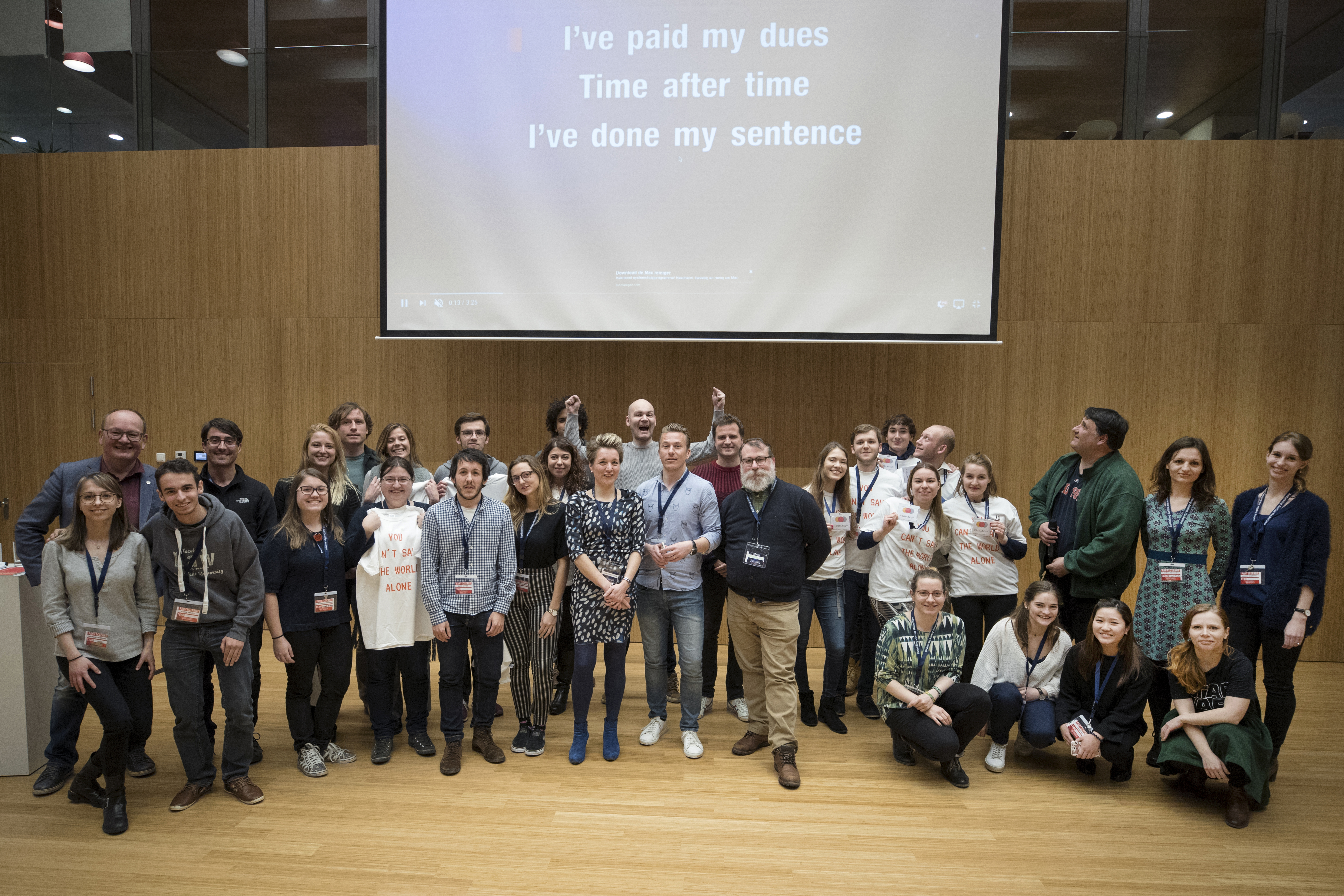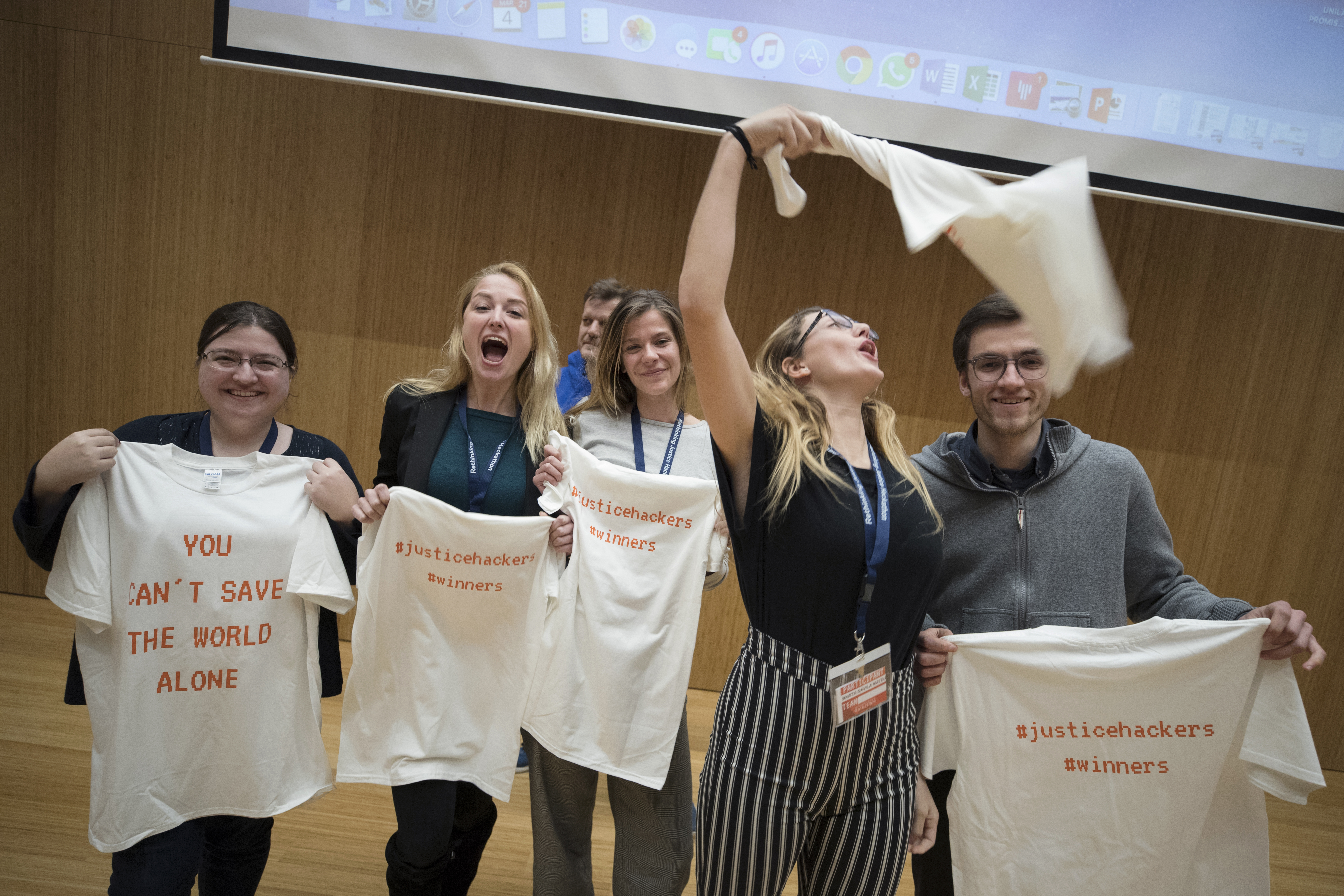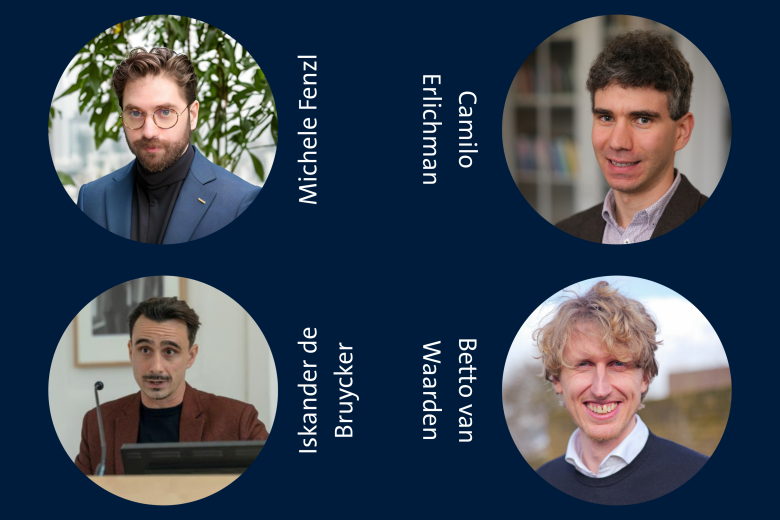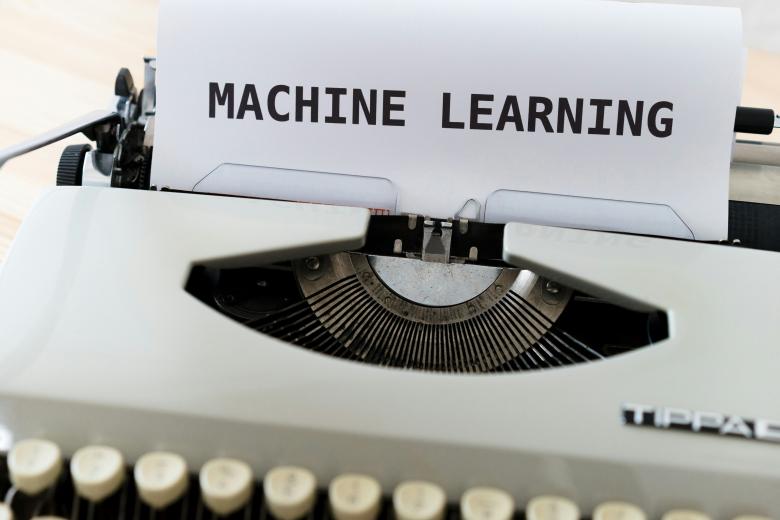Great creative energy at Rethinking Justice Hackathon
More justice and new innovative ideas for a better planet - it was an ambitious agenda that drew students, staff and alumni from Maastricht University, as well as friends from the industry, to a 24-hour hackathon at the Brightlands Smart Services Campus at the weekend. The Rethinking Justice Hackathon celebrated free thinking and enthusiastic doing, and redefined justice needs in the process.
Time-lapse video
Technoloawgeeks
A team of excellent volunteers made the event possible: Veronique Brokke, Elisabeth Rammos, Catherine Altobelli and Iulia Feroli. “Our community, Technolawgeeks, is about building bridges between disciplines and perspectives. Our aim for this Hackathon was to bring people together under the same roof who had never been in the same room before; and I am proud to say we’ve met this goal.”
Legal experts, psychologists, entrepreneurs from the Brightlands innovation community, as well as representatives of supporting organisations such as VraagHugo, Wavelength Law, Consense Data Exchange, Legal Hackers and HelloLaw joined forces to coach the teams and help them perform under time pressure.

Feeling free and safe
“We wanted to provide the participants with a free atmosphere where they could feel safe to explore their own creativity: we were happy to host the MSM Quartet which performed songs from the Game of Thrones soundtrack, as well as artist Dorota Gazy, who explores justice through contemporary dance. Meanwhile, some teams were playing karaoke in the auditorium, some were watching Friends and Shrek to relax in their own team rooms, and some were playing FIFA in the gaming corner. After midnight pizzas, most participants fell asleep in the quiet room on inflatable mattresses and bean bags, and there were even teams that stayed up all night. You tell me where you can have an educational experience with professional relevance that includes so much freedom”, says organiser Catalina Goanta.

Outstanding solutions
The quality of output provided by the teams was so high, that the Executive Board of Maastricht University decided to award four prizes instead of three. Each challenge partner announced a winning team, which together will enjoy a networking lunch sponsored by the University, as well as coaching provided by the respective challenge organisations. In addition, the two teams with the highest scores won a cash prize of €500 per team.
The two latter teams had developed solutions for eBay and for the Institute of Data Science. The first team (Pierre Ferran, Maria Tohaneanu, Elden van Delft, Monika Meskauskaite, Anna-Maria Svinhufvud and Bert Brookfield-Hird) worked on an online artificial-intelligence mediation tool for business-to-platform use for eBay, while the second team (Isabella Felicia Renirie, Andrada Heesterbeek, Marja van der Sluis, Peter Pelzer and Marta Dávila Mateu) coded a machine-learning algorithm that predicts a personalised sentence for juvenile criminals (Legal Decision Support Tool).
“Hackathons may be a hype all over the world, but there’s a reason for that. I hope this is only the beginning, and that as a university we can understand how we can channel the features and potential of this format and bring it into education and research to stimulate employability and societal impact”, concludes Goanta.
Also read
-
Four FASoS researchers awarded NWO XS grants
How do lobbyists use disinformation to sway policymakers? Who gets to shape the historical narrative of occupation and violence? Does growing inequality change the way citizens think about politics? And how have politicians defended “truth” across a century of media revolutions?
-
Reducing the Digital Divide: Empowering Students to Train, Evaluate, and Use AI Text Models
The Maastricht Law and Tech Lab, together with the Brightlands Institute for Smart Society (BISS), obtained a € 100.000 a Comenius Senior Teaching Fellow grant.
-
Green school playgrounds boost concentration and wellbeing
Children at schools with green playgrounds are better able to concentrate and display more social behaviour. This is the conclusion of a follow-up study within the long-running project The Healthy Primary School of the Future .